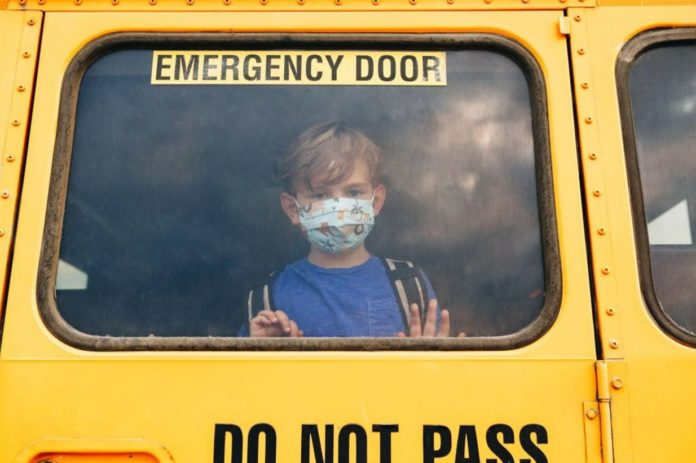Children who have been diagnosed with COVID-19 can develop long COVID symptoms that last at least two months, according to the largest study to date on long COVID symptoms in children aged 0 to 14 years.
The study, which was published in The Lancet Child & Adolescent Health, used a national sample of Danish children and matched COVID-19-positive cases with a group of children who had never had a COVID-19 infection before.
The main goal of our study was to find out how often children and babies have long-lasting symptoms, as well as their quality of life and how often they miss school or daycare.
The findings of the study reveal that “although children with a positive COVID-19 diagnosis are more likely to experience long-lasting symptoms than children with no previous COVID-19 diagnosis, the pandemic has affected every aspect of all young people’s lives. Further research into the long-term consequences of the pandemic on all children will be important going forwards,” said Professor Selina Kikkenborg Berg of Copenhagen University Hospital in Denmark.
Most of the past research on long COVID in young people has been done on teenagers, with babies and toddlers rarely being studied. In this study, questionnaires were distributed to the mother or legal guardian of 0-14-year-old children who tested positive for COVID-19 between January 2020 and July 2021. Responses were obtained for over 11,000 kids who had tested positive for COVID-19 and were matched by age and sex to more than 33,000 kids who had never tested positive for COVID-19.
The surveys used the World Health Organization’s definition of long COVID as symptoms lasting more than two months and asked participants about the 23 most prevalent symptoms of long COVID in children as identified by the Long COVID Kids Rapid Survey conducted in January 2021. Mood swings, rashes, and stomach aches were the most often reported symptoms in children aged 0 to 3. Mood swings, difficulty remembering or concentrating, and rashes were the most commonly reported symptoms in children aged 4 to 11, while fatigue, mood swings, and difficulty remembering or concentrating in children aged 12 to 14.
According to the study’s findings, children with COVID-19 diagnoses in all age groups were more likely than the control group to develop at least one symptom for two months or longer. In the 0-3 year age group, 478 out of 1,194 children who were diagnosed with COVID-19 had symptoms that lasted longer than two months, compared to 27 percent of controls (1,049 of 3,855 children). 38 percent of cases (1,912 out of 5,023) and 34 percent of controls (6,189 out of 18,372) in the 4–11 year old age group had long-lasting symptoms. In the 12–14 year old age group, 46 percent of cases (1,313 out of 2,857 children) and 41 percent of controls (4,454 out of 10,789 children) had long-lasting symptoms.
Children who are generally healthy frequently suffer the non-specific symptoms linked to long COVID. Headaches, mood swings, gastrointestinal pain, and weariness are just a few examples of common pediatric illnesses that don’t have anything to do with COVID-19.
However, this study found that kids with positive COVID-19 diagnoses were more likely than kids without positive diagnoses to have symptoms that persisted for a long time, indicating that these symptoms might have been a long COVID presentation. This is corroborated by the fact that about one-third of children with positive COVID-19 testing have symptoms that they did not have prior to contracting SARS-CoV-2. Additionally, the number of kids with those symptoms tended to decline as ailment duration increased.
In general, kids using COVID-19 reported fewer social and psychological issues than kids in the control group. More senior cases reported less fear, better sleep, and less anxiety over their prognosis than those in younger age groups. The fact that older age groups are more aware of the pandemic and that children in the control group are more fearful of the unknown illness and have greater restrictions on their daily activities as a result of protecting themselves from the virus is a possible reason for this.
“The opportunity to undertake such research is rapidly closing as the vast majority of children have now had a COVID-19 infection, for example 58% of children in Denmark had lab-confirmed infection between December 2021 and February 2022,” adds Professor Selina Kikkenborg Berg.
“Knowledge of long-term symptom burden in SARS-CoV-2 positive children is essential to guide clinical recognition, parental caregiving, and societal decisions about isolation, lockdown, non-pharmaceutical interventions, and vaccine strategies.”
The study results, according to the authors, are consistent with studies of long COVID in teenagers that demonstrate that, despite the low likelihood of long COVID in children, particularly when compared to control groups, it must be recognized and taken seriously. Future treatment and understanding of these symptoms and the pandemic’s long-term effects on children will benefit from more research.
The authors admit that the study has some limitations, such as a long time between being diagnosed and taking the survey. For psychological symptoms, the research relied on parent-reported data, which is less reliable.
This can also result in selection bias because moms and guardians of kids with more severe symptoms are frequently more eager to react, which causes the results to reflect the kids who are most afflicted.
Additionally, COVID-19 testing for the general population wasn’t available until August 2020, thus some kids in the control group might have had asymptomatic infections that went undiscovered.
Image Credit: Getty
You were reading: Long COVID Symptoms In Children Up To Age 14: New Study
